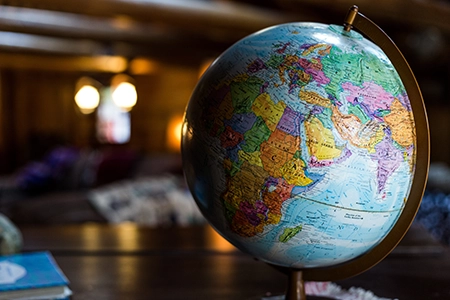
Your Partner in Turkish Translation Excellence
Embark on a journey of seamless communication with Haluk Aka Ltd.’s Turkish translation services. Our team of experts is dedicated to delivering translations that resonate with your audience, maintaining the essence of the original text.
Challenges and Technology in Translation
While crucial in bridging gaps in global communication, the field of translation has its challenges. These hurdles range from the intricacies of language nuances to the rapid evolution of technology in the translation industry.
One of the primary challenges professional translators face is the complexity of conveying cultural nuances and idiomatic expressions. Languages are deeply rooted in their respective cultures, and certain phrases or concepts may not have direct equivalents in other languages. This demands linguistic expertise and a deep cultural understanding from the translator to ensure the essence of the original message is retained.
Additionally, the technical complexity of certain subjects presents another challenge. Legal, medical, or scientific translations require translators to have specialised knowledge in these fields. The accuracy of these translations is paramount, as even minor errors can have significant consequences.
Keeping Up with the Technology
Technology has played an increasingly significant role in the translation industry in recent years. The advent of machine translation, powered by Artificial Intelligence (AI) and Natural Language Processing (NLP), has revolutionised the field. Tools like Google Translate and other sophisticated software can quickly translate large volumes of text.
However, while these technologies offer speed and efficiency, they have limitations. Machine translation often struggles with context, cultural nuances, and complex sentence structures. Therefore, the role of human translators remains indispensable, particularly in tasks requiring nuanced understanding and cultural sensitivity.
Furthermore, technology has enabled translators to work more efficiently. Translation Memory (TM) tools, for instance, help translators store and reuse previously translated segments, ensuring consistency and saving time in large projects. Similarly, Computer-Assisted Translation (CAT) tools aid in managing complex translation projects maintaining quality and coherence across various documents.
The future of translation lies in the synergy between human expertise and technological advancement. As AI and machine learning evolve, the collaboration between human translators and technology will become more refined, leading to greater translation efficiency and accuracy. This evolution promises to further enhance the role of translation in connecting and understanding our diverse world.
Final Words on Translation in International Relations
As explored throughout this post, translation is far more than just a linguistic process. It’s a vital tool in shaping world affairs. From the intricate realms of diplomacy to the bustling world of global trade, translation is a silent yet powerful force. It bridges languages and cultures, fostering understanding and cooperation on a global scale.
The historical context of translation in international relations reveals its longstanding impact, from deciphering ancient scripts to shaping modern diplomacy. In legal arenas, translation’s precision and cultural sensitivity uphold the integrity of international law and agreements. Meanwhile, translation paves the way for economic partnerships in global trade, breaking down barriers to market entry and compliance.
Cultural exchange, too, thrives through translation, allowing us to share and appreciate the diverse tapestry of global arts, literature, and media. However, this field has challenges, from navigating cultural nuances to adapting to rapid technological advancements.
Looking to the future, the implications of translation in international relations are profound. As our world becomes increasingly interconnected, the demand for skilled translators and linguists will continue to rise. The synergy between human expertise and technological innovation in translation will undoubtedly shape how nations interact, businesses operate, and cultures understand each other.
In essence, translation is not just about converting words; it’s about conveying ideas, emotions, and values. It is crucial in building a more connected, understanding, and collaborative world. As we move forward, the power of translation in bridging human connections will remain an essential component in the tapestry of international relations, reminding us that every language is the key to unlocking new horizons of global understanding.

Before you go…
Looking for superior translation services that are fast, precise, and budget-friendly? Look no further! We offer top-notch translation solutions at unbeatable rates. Contact us now to get a quote and let us help you communicate effectively in any language.
Further Reading:
Follow Us on Your Favourite Social Network

